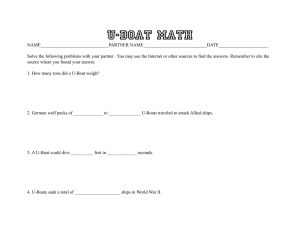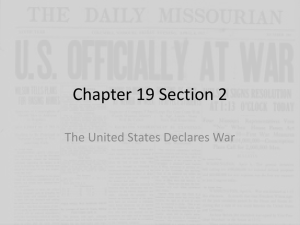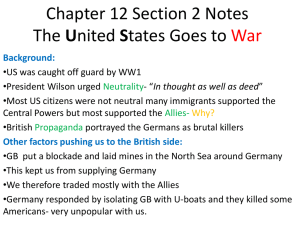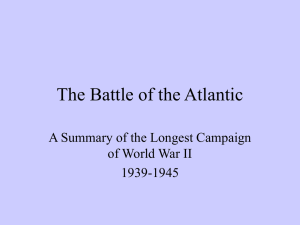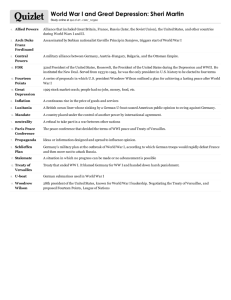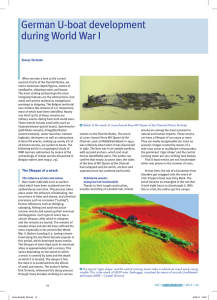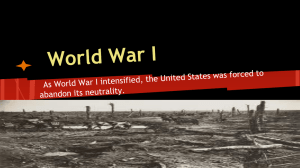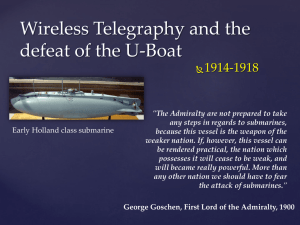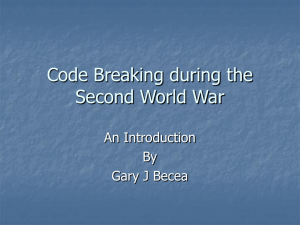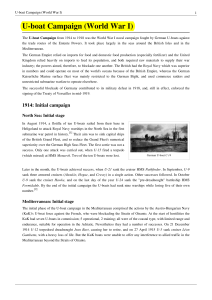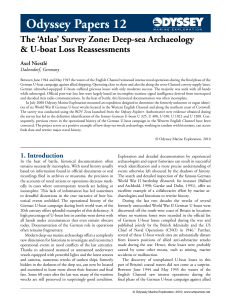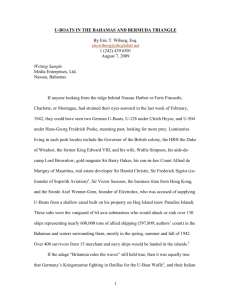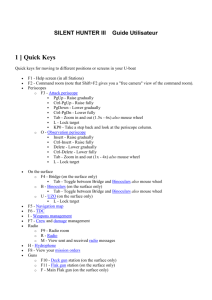uboat.net
advertisement
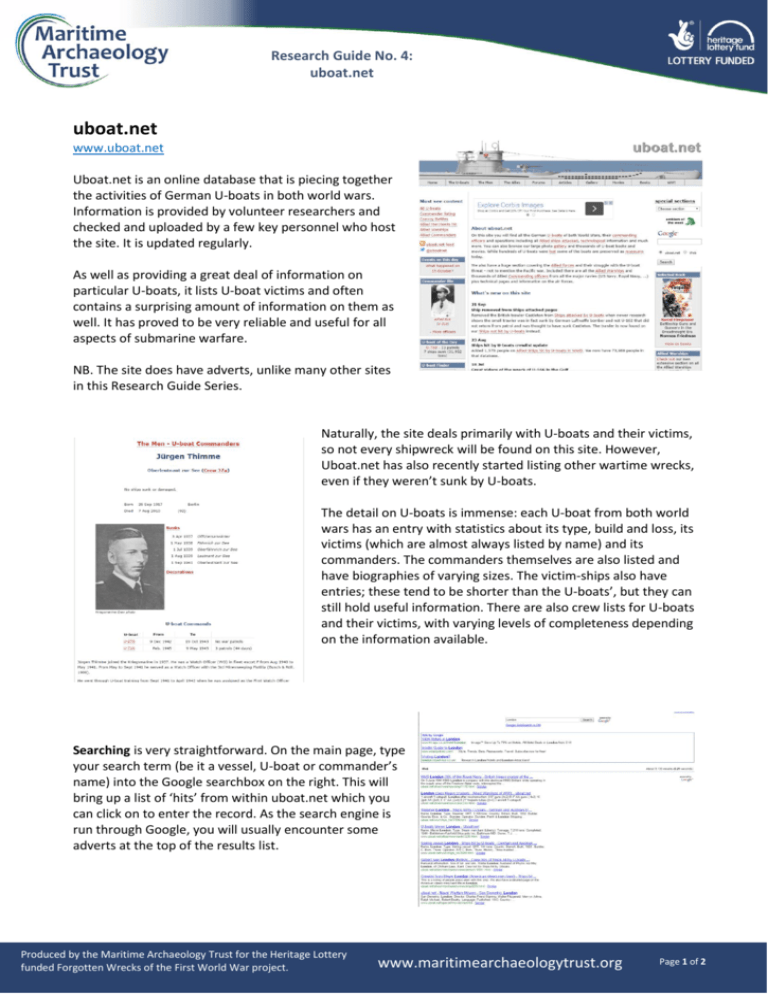
Research Guide No. 4: uboat.net uboat.net www.uboat.net Uboat.net is an online database that is piecing together the activities of German U-boats in both world wars. Information is provided by volunteer researchers and checked and uploaded by a few key personnel who host the site. It is updated regularly. As well as providing a great deal of information on particular U-boats, it lists U-boat victims and often contains a surprising amount of information on them as well. It has proved to be very reliable and useful for all aspects of submarine warfare. NB. The site does have adverts, unlike many other sites in this Research Guide Series. Naturally, the site deals primarily with U-boats and their victims, so not every shipwreck will be found on this site. However, Uboat.net has also recently started listing other wartime wrecks, even if they weren’t sunk by U-boats. The detail on U-boats is immense: each U-boat from both world wars has an entry with statistics about its type, build and loss, its victims (which are almost always listed by name) and its commanders. The commanders themselves are also listed and have biographies of varying sizes. The victim-ships also have entries; these tend to be shorter than the U-boats’, but they can still hold useful information. There are also crew lists for U-boats and their victims, with varying levels of completeness depending on the information available. Searching is very straightforward. On the main page, type your search term (be it a vessel, U-boat or commander’s name) into the Google searchbox on the right. This will bring up a list of ‘hits’ from within uboat.net which you can click on to enter the record. As the search engine is run through Google, you will usually encounter some adverts at the top of the results list. Produced by the Maritime Archaeology Trust for the Heritage Lottery funded Forgotten Wrecks of the First World War project. www.maritimearchaeologytrust.org Page 1 of 2 Research Guide No. 4: uboat.net There are no options to refine your search (unless you know any of the standard text to limit Google searches), but if you’re looking for a particular U-boat, there is a specific search field in the bottom left corner of the main screen. It does require you to match the U-boat name exactly though. For instance, UB-81 (which may be considered the correct name in some books) does not yield any search results, but UB 81 does. When viewing a record, you will find details about the vessel and, where possible, its location shown on Google Maps. One major advantage of uboat.net is its interconnectivity. When viewing a record, you can easily link to related records. From the record for UB-81 for instance, you can link to the U-boat type, and from there to every other vessel of that type. Alternatively you can view the shipbuilder and all of their other builds, or the commander, which will enable you to see all his other commands. The list of vessels attacked and sunk by that U-boat will take you to lists of records of victims; you may occasionally come across records that link to more than one U-boat (ones that were attacked, but perhaps not sunk, on multiple occasions). U-boat.net does appear to be very well researched, and their numerous essays and forum (both accessible from the menu bar along the top) show the extensive checking and cross-referencing that goes into information presented on the site. That said, as with all sources, you must remember to keep an open mind about the information you are presented with. Whilst the information has come from quite reputable sources, innocent mistakes in those sources can follow down into databases like this. U-boat wreck identification is still not a precise science – the differing facts presented by period Naval records (which often could not precisely identify a U-boat that had just been sunk but might use a ‘best guess’) do not always match the facts obtained from the wreck itself, and there are still wrecks whose identify has not yet been confirmed. Produced by the Maritime Archaeology Trust for the Heritage Lottery funded Forgotten Wrecks of the First World War project. www.maritimearchaeologytrust.org Page 2 of 2
